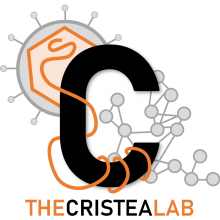Interactions of the Antiviral Factor Interferon Gamma-Inducible Protein 16 (IFI16) Mediate Immune Signaling and Herpes Simplex Virus-1 Immunosuppression
Type
The interferon-inducible protein IFI16 has emerged as a critical antiviral factor and sensor of viral DNA. IFI16 binds nuclear viral DNA, triggering expression of antiviral cytokines during infection with herpesviruses. The knowledge of the mechanisms and protein interactions through which IFI16 exerts its antiviral functions remains limited. Here, we provide the first characterization of endogenous IFI16 interactions following infection with the prominent human pathogen herpes simplex virus 1 (HSV-1). By integrating proteomics and virology approaches, we identified and validated IFI16 interactions with both viral and host proteins that are involved in HSV-1 immunosuppressive mechanisms and host antiviral responses. We discover that during early HSV-1 infection, IFI16 is recruited to sub-nuclear puncta and subsequently targeted for degradation. We observed that the HSV-1 E3 ubiquitin ligase ICP0 is necessary, but not sufficient, for the proteasom e-mediated degradation of IFI16 following infection. We substantiate that this ICP0-mediated mechanism suppresses IFI16-dependent immune responses. Utilizing an HSV-1 strain that lacks ICP0 ubiquitin ligase activity provided a system for studying IFI16-dependent cytokine responses to HSV-1, as IFI16 levels were maintained throughout infection. We next defined temporal IFI16 interactions during this immune signaling response. We discovered and validated interactions with the viral protein ICP8 and cellular ND10 nuclear body components, sites at which HSV-1 DNA is present during infection. These interactions may be critical for IFI16 to bind to nuclear viral DNA. Altogether, our results provide critical insights into both viral inhibition of IFI16 and interactions that can contribute to IFI16 antiviral functions.

